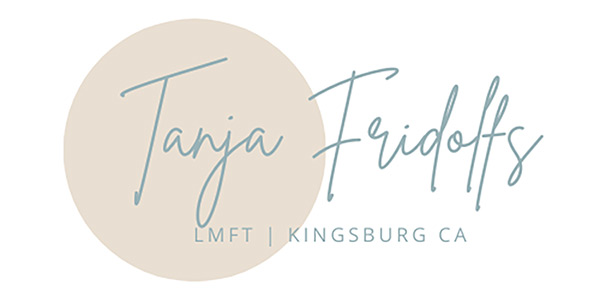Everything in our bodies and even our lives is connected. Our brain and our gut very much affect each other. The activities we choose and the foods and nutrients we put in or don’t put in our bodies all affect us. Our relationships can impact our mood and likewise, our mood can impact our relationships. It is my goal to focus on the whole person, including mind, body, faith and emotions. There are so many things a person can do to contribute to their overall health. There are hundreds of books written on this subject. I am just scratching the surface, with a few tips to get you started. These tips are not medical advice. This is information I’ve learned and seen work for my clients. Each person needs to discover what will work for them. Please check with your doctor before making any changes.
Here are some natural ways to decrease your anxiety.
Feed Yourself Well
We hear advice about eating all the time…”Eat Healthy,” “Follow this diet,” “Eat this at every meal,” “Never eat that.” It can be so confusing. The way we feed ourselves effects how we feel. It effects how we feel physically, like our energy or our digestive system and it effects our emotions and how our brains function. Here are some basic things that are good for your body and good for mental health.
Try to eat good quality protein every day (at every meal if possible).
Make sure you get several servings of fruits and vegetables.
Eat as little sugar and processed food as possible.
None of us are perfect, but trying even just one of these things can start to make a difference in how you feel. Our bodies need the right thigs to function properly. If we aren’t feeding ourselves well, it can cause or increase anxiety.
Counseling
Finding a mental health professional that you connect with can be so valuable. This person is there for you to support you in reaching your goals. Your counselor can help you learn tools to cope with anxiety. She will help you process things that stress you out or overwhelm you. You can work together to change your negative thinking patterns to healthier thoughts. For some people, having a place to be completely open and honest with no judgement is invaluable. Counseling has helped many people reduce their anxiety to a healthy level. We all need a little bit of anxiety, just like we need all our emotions. When the anxiety is overwhelming and begins controlling our lives, that is when it becomes a problem.
Multivitamins, B Vitamins and Magnesium
As I stated above, there are so many things our bodies need to function properly. Eating well is a great way to get a lot of these things, but sometimes our bodies are depleted in certain essential vitamins and minerals. This can make a huge difference in how our bodies and minds are able to cope with stress. I am not a physician and am not giving medical advice, but I do want to share information I’ve learned and seen success with over the years. Here are a few things that seem to be agreed upon by most experts in this field.
Take a good quality multivitamin and mineral supplement. This can give you a good foundation of many of the things your body needs. Taking a multivitamin and mineral supplement can help you get a variety of the basics, to supplement what your food doesn’t provide. It is well documented that B vitamins can help with stress. Taking a good quality B complex vitamin could give your body what it needs to help relieve some of your anxiety. Magnesium is an important nutrient that is necessary for over 300 functions in your body. Magnesium can help with sleep and mood. It is also depleted by stress and many medications, so most Americans don’t have enough magnesium in their bodies.
Eating healthy food is one of the best ways to get the vitamins and nutrients we need, however it can be helpful to use supplements as well.
Have you heard of GABA?
GABA is an amino acid (found in animal protein) that our bodies need. It very much effects our mental health. If you have enough GABA, it should help your body deal with stress and anxiety. It can even reduce your sugar and carb cravings. Do you struggle with stress eating? Do you feel anxious frequently? Have panic attacks? Adding GABA to your daily supplements could help you to feel calmer.
Neurofeedback has been shown to reduce anxiety
Repairing the Dysregulated Stress Response System
Anxiety is a feeling of fear and distress. It’s a normal physical response when you are faced with severe stress or danger. However, it becomes a disorder if it’s prevalent almost all the time or if it becomes so intense that it interferes with your life.
“Anxiety disorders” is an umbrella term that includes generalized anxiety disorder (GAD), panic disorder, phobias, social anxiety disorder, obsessive-compulsive disorder (OCD), and post-traumatic stress disorder (PTSD).
Prolonged symptom duration typically classifies anxiety as a chronic disorder, and in many cases these symptoms are frequent panic attacks, obsessive thoughts, a paralyzing phobia, or unrelenting worries.
Anxiety changes the brain by weakening the connections between the amygdala (a brain structure associated with emotional processes) and the ventrolateral prefrontal cortex (a region of the frontal lobes associated with response inhibition and goal-appropriate response selection).
In healthy brains, the ventrolateral prefrontal cortex and the amygdala work together to analyze and respond to social and environmental cues.
So, when you experience a potential threat, the amygdala sends signals throughout the brain, activating the ventrolateral prefrontal cortex, which helps your brain respond to the situation appropriately. Anxiety weakens the connection between the ventrolateral prefrontal cortex and the amygdala, making you less likely to respond to the threat rationally.
Research has shown that neurofeedback may help strengthen the connection between these parts of the brain. With the connection restored, the ventrolateral prefrontal cortex can effectively provide an appropriate response to potential threats, reducing the impulsive, hyperactive reactions commonly associated with anxiety.
In a study of highly-talented musicians performing under stressful conditions, only musicians who received alpha-theta (enhancement) neurofeedback training yielded enhanced musical performance under stress. In another study, adolescents with self-reported attention and anxiety symptoms found enhanced alpha and SMR along with improved symptoms (by visual analog scales) after neurofeedback training of alpha, theta, and SMR twice a week for five weeks.
If you decide to pursue neurofeedback, we will do a thorough assessment to create protocols specifically for you. Here are some frequently asked questions about neurofeedback
If you’re struggling with anxiety, I would be honored to help you find relief. Please reach out. I provide counseling and neurofeedback as well as helping you focus on all the important aspects of your life. I want what is best for you. We care about our clients very much. If I am not the right fit for you, I will do my best to provide referrals to professionals that can help you.
(559) 238-7464
tanja@tanjafridolfs.com




国 歌 よ り 聞 い た 曲